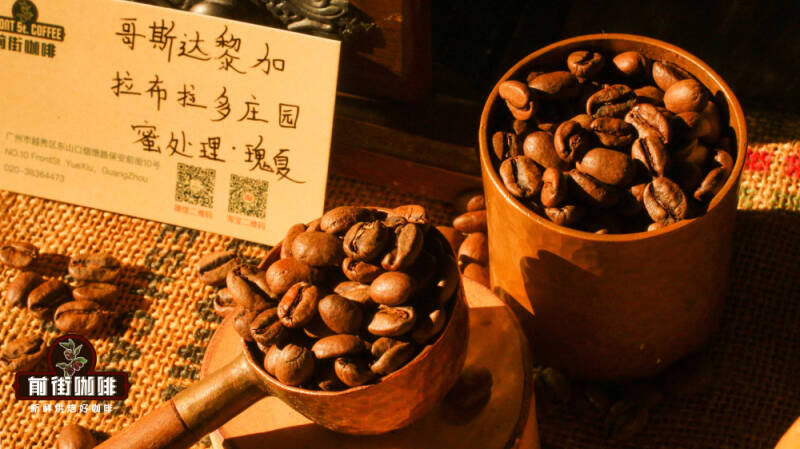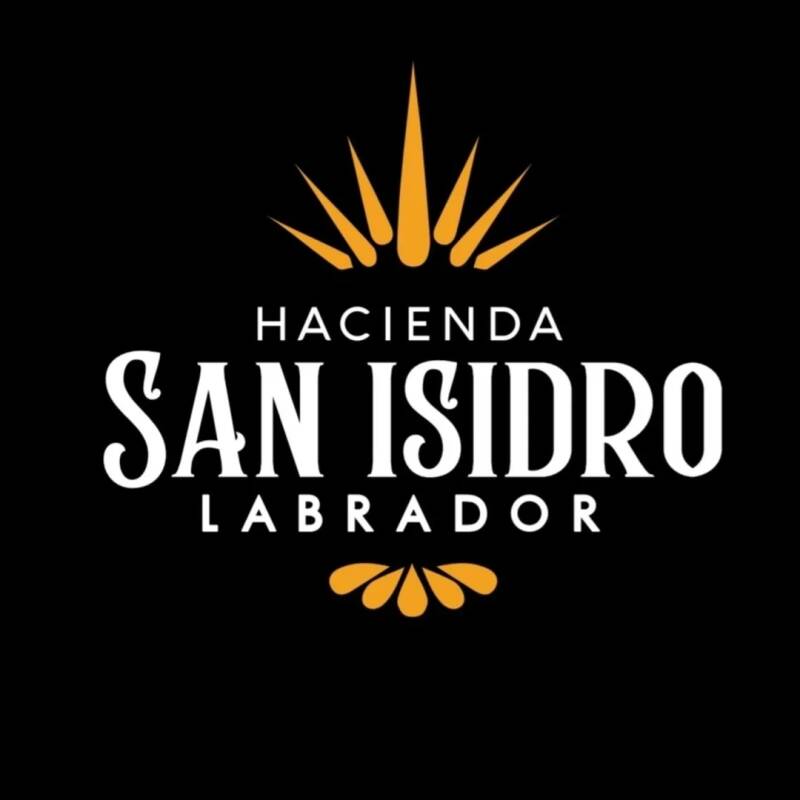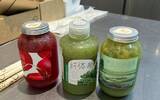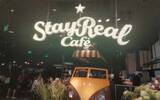Introduction to honey processed rose summer coffee beans at San Isidro Labrador Estate, Costa Rica

Costa Rica San Isidro Labrador Manor Honey treatment of Rose Summer
Country: Costa Rica
Producing area: Tarazu Kaisedonia
Manor: San Isidro Labrador Manor
Altitude: 1900-2100 m
Variety: Rose summer
Treatment method: honey treatment
Flavor: Cherry, orange, yellow peach, flower fragrance, oolong tea
Located in the most famous Tarazu producing area of Costa Rica, the 6-hectare coffee plantation in the Santa Mar í a de Dota area is located in San Isidro Labrador Manor (Hacienda San Isidro Labrador). The steep terrain protects the coffee trees from the Atlantic climate and warm currents from the Pacific Ocean, with plenty of sunlight during the day. The whole manor is about 1950 meters above sea level, where there are two distinct seasons of drought and rain, so it also creates a unique microclimate for the planting area.
As a third-generation coffee farmer, the landowner John Munger Naranjo (Johel Monge Naranjo) has been exposed to all aspects of coffee under the influence of his parents since childhood, and has developed it into a successful business.

When Johel was 15 years old, his father gave him a piece of land to grow coffee and live independently, hoping that he would become a diligent coffee farmer. But at the age of 21, Johel had a new ideal. He wanted to study land surveying and mapping, so he sold the coffee farm he took over from his father and worked as a land mapping engineer for more than 20 years. Until his retirement, the restless old Mr. Johel decided to become a farmer again, buying a piece of land called San Isidro Labrador and returning to his favorite childhood career.
The old man usually takes care of the Labrador estate with his son Matias Monge, and then focuses on the production, cultivation and quality of boutique coffee. Matthias, who graduated from college and became a mechanical engineer, worked in this field for several years, probably because of his family's enthusiasm for coffee, and finally returned to the family farm to help his father take care of the coffee business.
With the joint efforts of this family, Labrador Manor has repeatedly participated in COE raw bean auctions with high-quality coffee in recent years, and has achieved a number of good results:
Won the first place in COE in 2017
Won the second place in COE in 2018
Won the first and third place in COE in 2019
Won the second place in COE in 2022
Won the first place in COE together with Finca El Cedro Manor in 2023
Won the second place in the COE experimental group in 2024.
It is worth noting that Labrador was acquired by Donrica about nine years ago, that is to say, the San Isidro Labrador we refer to today is nominally owned by Don Dario Farm.
The San Isidro Labrador Manor in Qianjie adopts the honey treatment favored by many friends, which not only gives the delicate fragrance of pink flowers to Rosa, but also makes the coffee show a different tropical fruit style. In terms of micro-batch processing technology, Johel uses the raw bean processing skills accumulated for many years to maximize the advantages of honey treatment. This treatment is one of the characteristics of Costa Rica, so that the aroma of coffee beans are concentrated and sweet, rich in layers.
In fact, the operation of honey treatment is not complicated, but if you want to achieve the desired effect, you should not only pay attention to many small details, but also more time-consuming and energy-consuming than sun washing. First of all, the harvested ripe fruit is put into the fresh fruit peeling machine to peel off the peel and pulp, and then the raw beans with complete pectin are laid on the suspended leaky net for drying, during which the fruits need to be turned constantly to ensure uniform heating. during this period, the shell beans will stick together because of the slippery outer layer, and continue to harden until a suitable dehydration rate is reached, and then can be sent to the warehouse for storage.
In order to retain the floral aroma and fruit acid molecules of this honey, while highlighting its candy-like sweetness, Qianjie bakers believe that the effect of medium and shallow baking is the best.
After two days of exhaust and rest, a group of friends in Qianjie couldn't wait to test the bean. In the dry fragrance, Labrador manor honey treatment of rose summer gives off a strong pink rose fragrance, as well as cranberries, yellow peaches, grapes and other fruits, it smells very pleasant, after hot water is injected into the current street, the coffee gives off a fresh smell of citrus and honey.
After breaking the shell and picking up the dregs, Qianjie tasted the obvious juicy sense of coffee, accompanied by grape, orange, cherry flavor, black tea-like sweet and elegant floral aroma, as the temperature dropped slowly, the sour and sweet taste of citrus and apricot became lighter, the tail rhyme was clean, and the entrance was like drinking a cup of sweet fruit tea, which made people feel happy.
In general, when cooking hard beans at high altitude, the flavor tends to be sour, and under medium and shallow roasting, the interior of coffee beans still maintains a hard structure, so higher water temperature and finer grinding degree are needed for cooking, so that more aromatic substances can be excited. For coffee with such a complex aroma as Rosa, in order to better present its flavor and taste, Qianjie suggests choosing fresh coffee beans. The coffee sold in Qianjie is freshly baked within 5 days. Qianjie knows the importance of the freshness of coffee, so it is hoped that the coffee beans received by guests are the best flavor period and can be brewed and drunk directly.
For brewing, Qianjie selected Hario v60 filter cup, coffee powder weighed 15g, ground into fine sugar (the standard sieve rate of No. 20 was 80%), water powder ratio was 1:15, water temperature was 91 ℃, and three-stage extraction was carried out.
Qianjie will first pour 15 grams of coffee powder into the filter cup to clear the weight, the first stage will be injected with 30g water for 30 seconds, and the clock will start. The injection from the center point of the whole small flow will begin to circle outward, paying attention to the need to moisten the whole powder layer.
In the second stage, 120g of water is injected with a larger flow of water, in order to raise the entire powder layer, and the water column needs to be injected vertically and evenly, and the chronograph shows 150g, which is finished in about 55 seconds.
When the liquid level drops to half of the position, start to use a small flow around the small circle to inject 90 grams of the third section, try to control the flow is too large, easy to break the coffee powder layer and cause insufficient extraction. The final amount of water injection is 240 grams, and the completion time of drip filtration is about 2 minutes and 10 seconds. After removing the filter cup, shake the coffee liquid in the sharing pot and start tasting.
Important Notice :
前街咖啡 FrontStreet Coffee has moved to new addredd:
FrontStreet Coffee Address: 315,Donghua East Road,GuangZhou
Tel:020 38364473
- Prev

"Cut to collapse"! Xi tea employees laugh at themselves for becoming kitchen workers!
▲ Click to pay attention| Daily Boutique Coffee Culture Magazine Coffee Workshop A few days ago, Xi Tea's "Super Botanical Tea" series added a new member, a red vegetable head beauty bottle. After it was launched, it immediately attracted fans who love fruits and vegetables to order and taste it. It also made many people sigh that Xi tea's update speed on the fruit and vegetable track is far ahead.
- Next

Crowded the scene! Mayday Coffee Shop is withdrawing from Guangzhou!
▲ Click to pay attention| Daily Boutique Coffee Culture Magazine Coffee Workshop Yesterday, a long line formed at the entrance of a coffee shop called "stayreal cafe" in Tianhuan Square, Guangzhou. People came and went and orders flowed in the store. Passers-by looked at the lively scene and couldn't help but wonder where this coffee shop came from.
Related
- What grade does Jamaica Blue Mountain No. 1 coffee belong to and how to drink it better? What is the highest grade of Blue Mountain coffee for coffee aristocrats?
- What are the flavor characteristics of the world-famous coffee Blue Mountain No. 1 Golden Mantelin? What are the characteristics of deep-roasted bitter coffee?
- Can I make coffee a second time in an Italian hand-brewed mocha pot? Why can't coffee be brewed several times like tea leaves?
- Hand-brewed coffee flows with a knife and a tornado. How to brew it? What is the proportion of grinding water and water temperature divided into?
- What is the difference between Indonesian Sumatra Mantinin coffee and gold Mantinin? How to distinguish between real and fake golden Mantelin coffee?
- What does bypass mean in coffee? Why can hand-brewed coffee and water make it better?
- Unexpected! Ruixing Telunsu lattes use a smoothie machine to foam milk?!
- % Arabia's first store in Henan opens into the village?! Netizen: Thought it was P's
- Does an authentic standard mocha coffee recipe use chocolate sauce or powder? Mocha Latte/Dirty Coffee/Salty Mocha Coffee Recipe Share!
- What is the difference between Vietnam egg coffee and Norway egg coffee? Hand-brewed single product coffee filter paper filter cloth filter flat solution!

